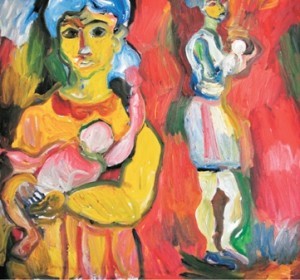
The extraordinary congress “A new scientific humanism” took place on Febraury 18th-19th at the Meyer Children’s Hospital: the dare was that of building a bridge between biological, biomedical, clinical sciences and human sciences. A dare completely won.
Precision medicine – previously imagined as personalized medicine – makes use of new analytical methods, such as genomics, proteomics, metabolomics, in order to contextualize patient through molecular determinants. This, with the aim to give a more precise medicine and a more suitable therapy to the patient.
Narrative Medicine encounters precision medicine because it puts the person at the center and highlights narrative, the capability to listen and to take a challenge as fundamental requisites for healthcare professionals and medicine.
From these two care and research areas, lecturers addressed several themes, both on a micro level of care of the person and on a macro level of capability to think changes in medical and technological research, political, economic, and healthcare systems, and society itself: among other things, lecturers posed the necessity to find common denominators to entirely take care of societies, and they addressed the theme of social inequalities, that intersects healthcare wellbeing issues in a transforming “healthcare culture”.
Participants addressed caregiver-patient communication, and the relationship between them and its problematization. They also addressed Narrative Medicine and narratives: if we could manage the single story, or if instead we could collect more narratives, linked – for example – to people with the same pathology. A completely consensual solution was not found, but speakers agreed on the fact that the single story surely helps in personalizing cares; and furthermore, that a collection of narratives – analyzed with more complex methods than those linked exclusively to questionnaires – can let emerge common elements that, if correctly red, can help improving healthcare and welfare systems.
Lecturers made a wonderful excursus on the aforementioned “frontier science” (genomics, proteomics, metabolomics, epigenetics), that were really narrated during the congress. It is difficult to summarize their huge results, mainly considering the profound questions they pose: how much of our destiny has been already written? Looking at these sciences, can derive a reconsideration of the individual and collective room of freedom in the ethical, political, philosophical, anthropological field.
During the congress was presented the film “Settembre” (“September”): the story of three adolescents with diabetes organizing their life in campus, supported by their completely different families – from the protective mother of a boy that, smiling, has a laugh, to the grandmother that allows the niece to make a tattoo with the first letter of her boyfriend’s name.
The poem by Gian Paolo Donzelli, from the book “Stupore della nascita” (“Wonder of birth”), published by Passigli Poesia, is the epilogue of the congress:
Estubazione (Extubation)
Piange, Dio mio, piange.
Separato dalla macchina
Generosa, allontanato dal tubo
Invadente, svuotata la bocca,
Liberata la gola, riempiti i polmoni.
Piange, mio Dio, piange,
Finalmente è nato!
(He cries, my God, he cries. Separated from the generous machine, distanced from the invasive tube, empty the mouth, free the throat, fill the lungs. He cries, my God, he cries, finally he’s born!)
